Your veins and arteries are interconnected components of your circulatory system, working together to support your overall health and well-being. They are like the traffic roads of your circulatory system. Arteries carry oxygen-rich blood away from your heart to nourish your body’s tissues, while veins return oxygen-depleted blood back to your heart. This constant circulation is crucial, delivering oxygen and nutrients and removing waste products.
Arteries vs. Veins: What’s the difference
Arteries also play a role in regulating blood pressure. Their elastic walls can expand and contract, maintaining steady blood pressure by absorbing the heart’s contractions’ force. If they lose elasticity or narrow due to issues like atherosclerosis, high blood pressure can result, raising the risk of heart disease and stroke.
Veins have one-way valves to prevent blood from flowing backward, ensuring it returns to your heart. When your muscles contract during activity, they squeeze veins, pushing blood toward the heart and preventing pooling. Your veins also transport waste products, like carbon dioxide, back for elimination. Both arteries and veins are intertwined, and their health is pivotal to your overall well-being, impacting your cardiovascular health and circulation. Regular exercise, a balanced diet, and heart-healthy habits help ensure their optimal function.
7 reasons to care about your veins and arteries
Here’s how they are related and their roles in maintaining your health:
Transportation System: Veins and arteries are like the highways and roads of your circulatory system. Arteries carry oxygen-rich blood away from your heart to nourish your body’s tissues, while veins return oxygen-depleted blood back to your heart. This continuous circulation is essential for your body’s survival, as it delivers oxygen and nutrients and removes waste products.
Blood Pressure Regulation: Arteries are responsible for regulating blood pressure. They have strong, elastic walls that can expand and contract to accommodate changes in blood flow. The elasticity of arterial walls helps maintain stable blood pressure by absorbing the force generated by the heart’s contractions. If your arteries lose their elasticity or become narrow due to factors like atherosclerosis, it can lead to high blood pressure (hypertension), which is a risk factor for various health problems, including heart disease and stroke.
Vein Function: Veins play a crucial role in returning blood to your heart. They have one-way valves that prevent blood from flowing backward. When your muscles contract during physical activity, they squeeze the veins, helping to push blood toward the heart. This mechanism prevents blood from pooling in your extremities.
Oxygen and Nutrient Delivery: Arteries carry oxygen and nutrients, such as glucose and amino acids, to your body’s cells. Adequate blood flow through arteries ensures that your tissues receive the necessary oxygen and nutrients for their proper function.
Waste Removal: Veins transport carbon dioxide and metabolic waste products, like urea, back to the heart and lungs for elimination from the body. This process is vital for maintaining your body’s acid-base balance and preventing the buildup of harmful waste products.
Overall Health Impact: The health of your veins and arteries has a significant impact on your overall health. Problems with your arteries, such as atherosclerosis (narrowing of the arteries due to plaque buildup) or aneurysms (weakened artery walls that can bulge or burst), can lead to serious cardiovascular issues. Similarly, issues with your veins, such as varicose veins (swollen and twisted veins) or deep vein thrombosis (blood clots), can have health implications, including discomfort and circulation problems.
Circulatory Diseases: Conditions that affect both veins and arteries, such as peripheral artery disease (PAD) or chronic venous insufficiency (CVI), highlight the interconnected nature of these vessels. PAD involves the narrowing of arteries in the limbs, reducing blood flow, while CVI involves issues with vein function, leading to symptoms like leg swelling and discomfort.
The Takeaway?
Your veins and arteries work together to maintain the essential functions of your circulatory system, which has a profound impact on your overall health. Ensuring the health and proper functioning of both veins and arteries is vital for a long and healthy life. Regular exercise, a balanced diet, and lifestyle choices that promote cardiovascular health can help support these critical components of your circulatory system.

